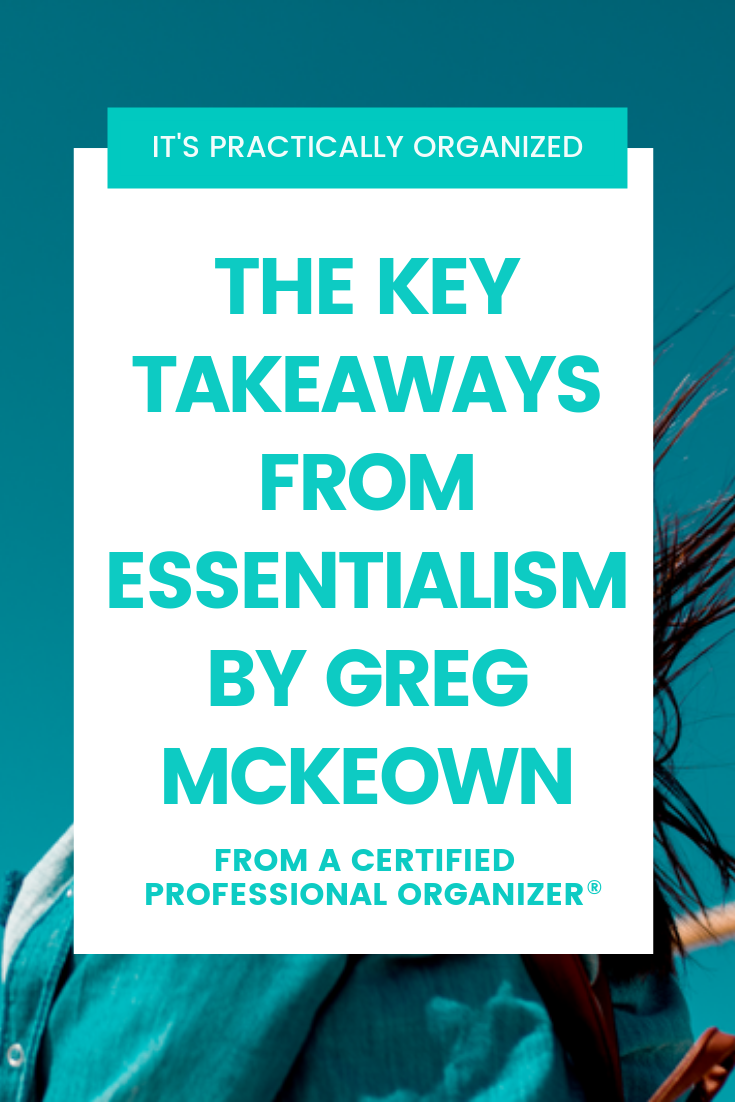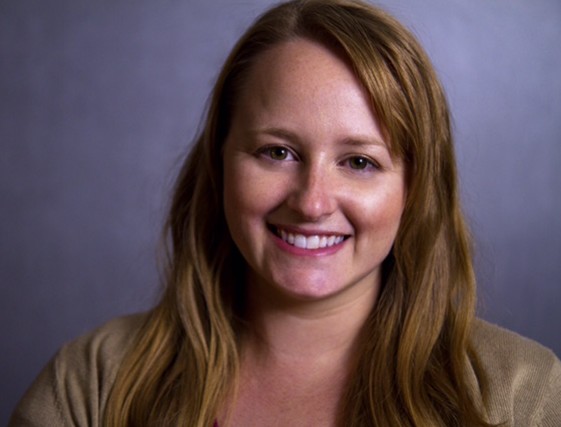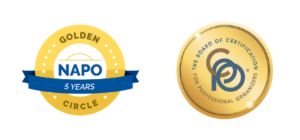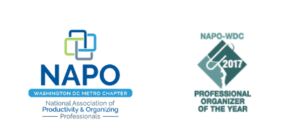Applying Takeaways from the book Essentialism: The Disciplined Pursuit of Less
The Book
I recently finished reading (listening via Audible) to the book Essentialism: The Disciplined Pursuit of Less by Greg McKeown.
It was a fascinating book with so many nuggets of wisdom and challenges you to think hard about what you really want in your life and what is most important.
So here are some of just a few of my favorite takeaways to share with you and don’t be surprised if there is a follow up blog to this because my notes from this book were extensive.
What is Essentialism?
First, I’m sure you’re wondering what is essentialism and what does it mean in this book. McKeown defines it as a life concept, a whole new mindset for how we approach all our decisions from work, home, school, and relationships.
It’s about knowing what is most important to you at this time and putting that first. That understanding gives you focus. It’s about making choices that fit this focus. It’s not about having it all or doing it all. It’s about determining what’s essential for you as a person, for your company and life.
I know that can sound ambiguous and daunting at the same time. In the book he breaks it down further and really challenges you to think about what you’re doing and what choices you’re making. He offers tips to help with overwhelm and streamlining thoughts and goals.
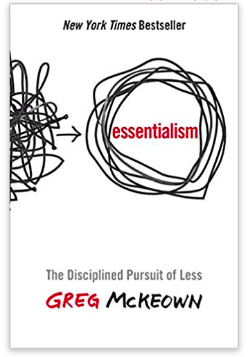
© Greg McKeown
Essential Takeaways
Boundaries
In the book McKeown says a ‘non-essentialist’ thinks boundaries or limits are limiting and an essentialist knows boundaries or limits can make you limitless. He goes on to say that boundaries are not constraining they are liberating. I loved this.
Sometimes when I work with clients (organizing and productivity) they are afraid a system or schedule is constraining. They fear they won’t have the flexibility or that the system or schedule is not maintainable. When you create the system or schedule you design it to work for you.
You can build flexibility into your schedule and you can design an organizational system at home that fits your needs including how easy or challenging it is to maintain. The boundaries protect your time, energy, and your life balance. Having a schedule allows you to spend your time where and with who you want. Creating an organized pantry system helps you save time finding what you need to make dinner or saving you a trip to the store because you can’t find an item.
If you don’t set boundaries there won’t be any or worse they will be set by other people.
Executing
So you’re ready to get started and tackle a project that will improve or streamline your life. McKeown says it’s not enough to say you will do something every day or you will accomplish something by the end of the week.
You have to really understand how exactly you will execute it. For instance, you are going to organize your closet. Great. You need to schedule the time specifically on your calendar. You need to know where you are taking donations of clothes you no longer need. You need a bag for those items and you need to figure out when you can drop off items. You also need to be aware of what tools or products you might need to keep it maintained. Scheduling a reminder to tidy or keeping a donation bin in your closet will help you maintain it as well. Now you have a plan to execute.
Similarly, if you say you’re going to go to workout every day how will that look? Will you go to the gym or workout at home? You need to pick a time of day and plan for what you need to complete your workout. If you’re going to work or school after make sure you have clothes and books with you. Create a real plan that allows you to execute this task and reach your goals.
At work you might write a weekly plan – stating you will get “the report” done by the end of the week. How do you execute this? How and when you will get it done? Put it on your schedule when you will work on it. Maybe it’s every afternoon for an hour or maybe you take most of Tuesday to get it all done. Do you have all the information needed to complete it? If not schedule time to get that information, especially if it’s from someone else. Plan the execution so the report truly gets done this week.
Protect the Asset
This part of the book really resonated with me. In the book he asked “What is your biggest asset?” By now you probably understand his thinking and guess that he will say your brain! You’re close! It’s your body. Your body is your biggest asset. It protects your mind. If your body is not right, not healthy then your mind won’t be right. You must protect your body in order to protect your mind.
I talk about this with both more organizing clients and productivity clients. When organizing someone’s home there is almost always one person in the household who knows where everyone is. That’s a lot of stress for someone to carry and that person tends to take care of others before themselves. I remind clients and I will remind you – you can’t take care of someone else if you’re not ok. It’s just like they tell you on planes. Put the oxygen mask on yourself before helping others. You can’t help if you pass out.
When I start working with a new productivity client who wants to be more efficient and boost productivity I ask them about their self care. I ask them if they have seen a doctor for a checkup. If they are struggling with finding time to get work done they probably have put off wellness visits because they “don’t have time”. I remind them self care is important because if you’re not taking care of yourself your productivity won’t continue to improve.
You’ll burn out. So protect your asset.

Final Thoughts
McKeown hopes that at the end of this book you will consider becoming an essentialist.
I hope that at the very least from this blog post or reading his book entirely you’re able to take essentialism strategies and practices and implement them into your life to improve your life.
Don’t try to overhaul your life to become an essentialist overnight. That’s something that takes time and you constantly work on. Instead start small and pick something from this blog to apply to your life this week. See what it can do for you.
What are you going to try this week?
Let me know in the comments!
Want to save these ideas for later? Pin it!
